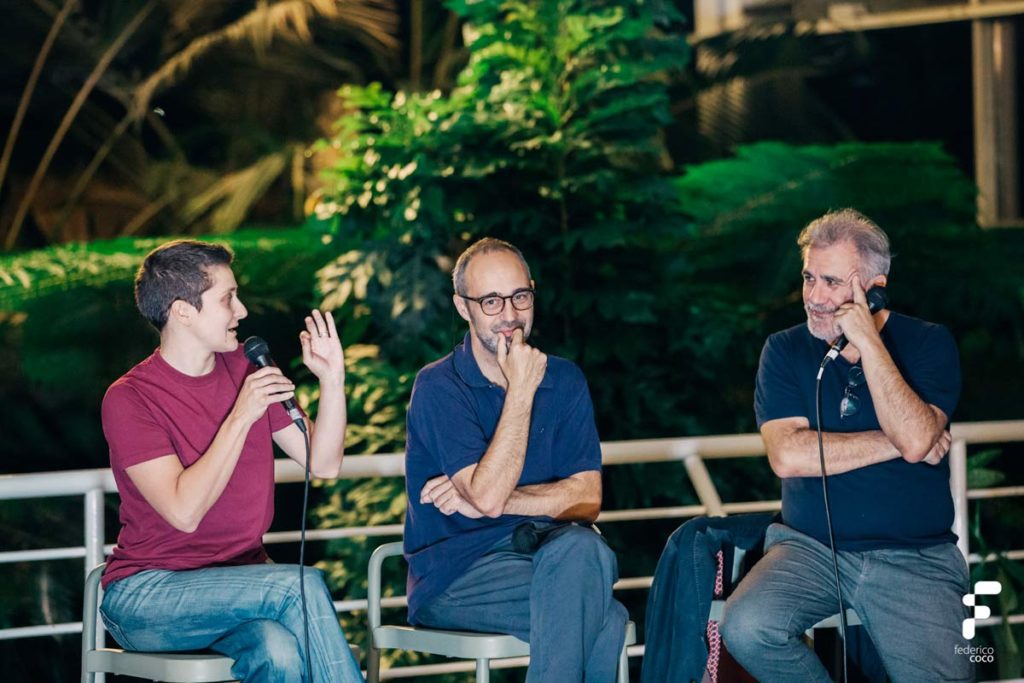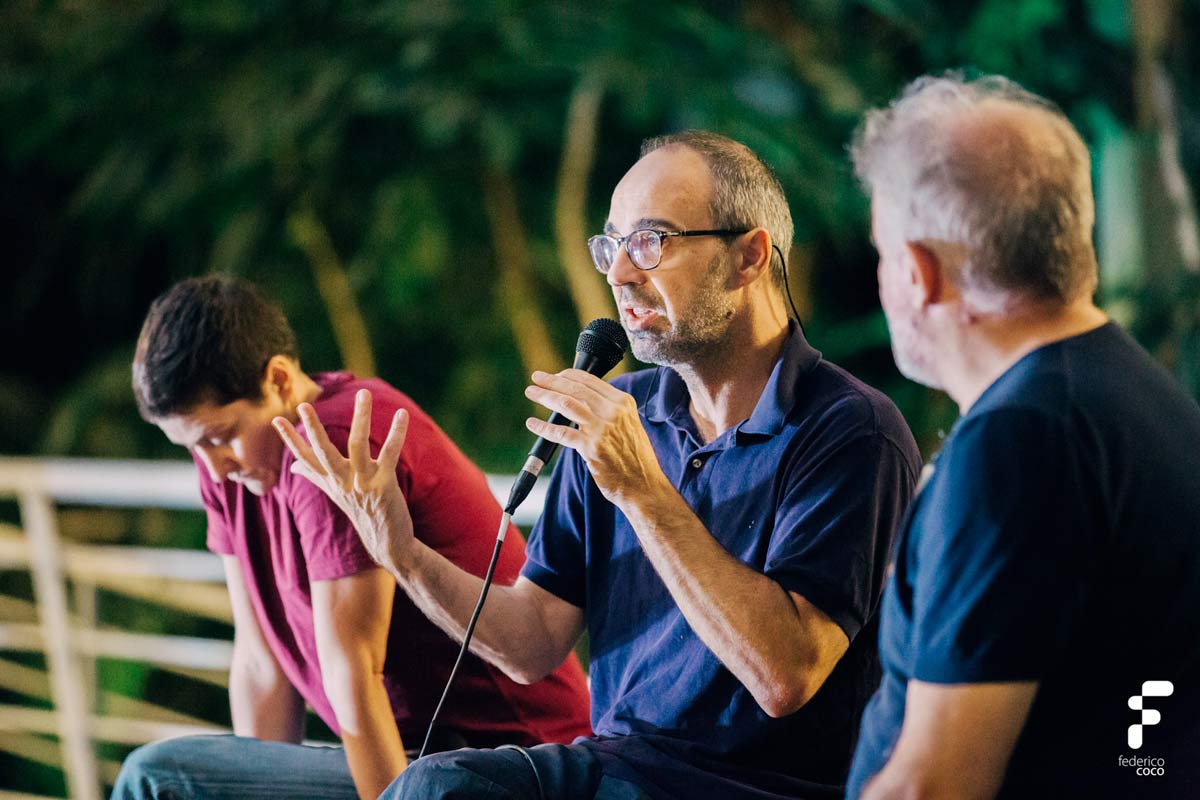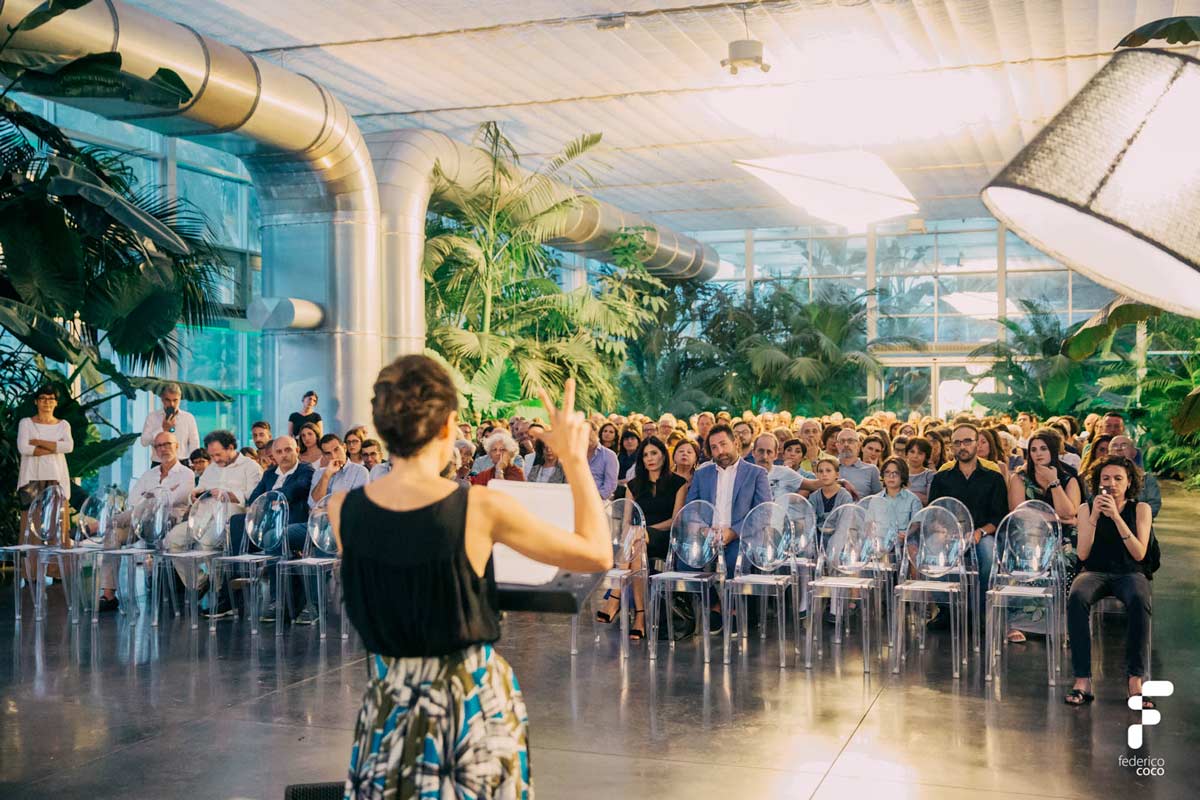Meeting with Niccolò Ammaniti at Radicepura to talk about narrative models and television languages.
“Only a few times I had the impression that cinema could explain my thoughts better than writing. This time, I realized that only the cinema was able to give the right push”.
These words were said by Niccolò Ammaniti, one of the most visionary and intimist Italian noir writers, author of numerous bestsellers, and fresh from the huge success of the series Il Miracolo ((The Miracle) Sky Atlantic HD), which he is director and co-screenwriter of. We met him during the literary fair about the crime novel “La ginestra sul cortile” at Radicepura: an informal and captivating talk with Francesca Manieri, where Niccolò told us how he went from writing to a film camera, from being all by himself to finding his house suddenly packed with people. From taking every now and then some cup of coffee (rigorously moka), to having to use the coffee maker several times a day, in order to regain strength.
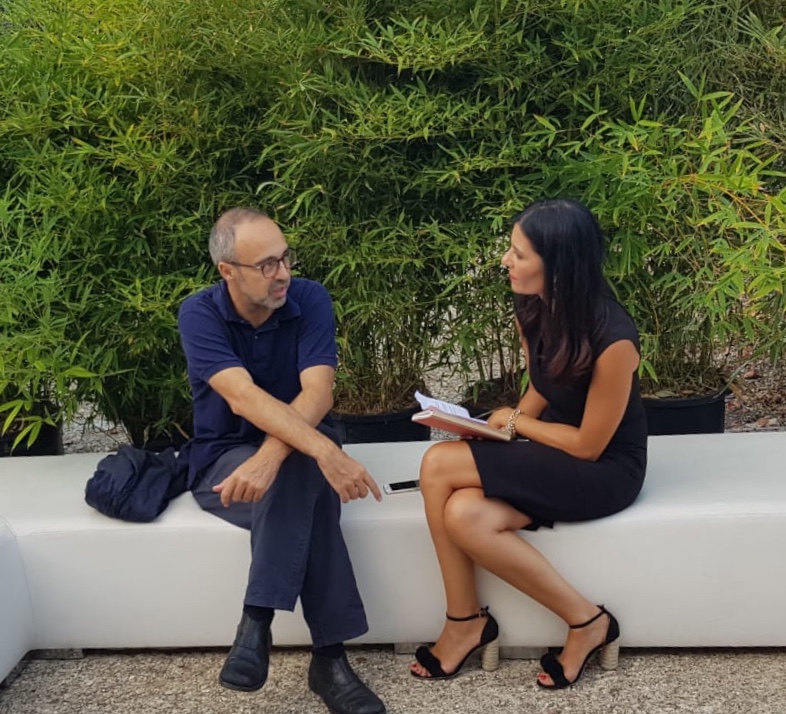
What does it mean for a writer to stand behind a film camera?
It means starting a new and totally different adventure: you go from being all alone to being with the others. You find yourself showing people, who work with you, what you imagined and what you would usually write while being alone. You are committed emotionally more than mentally: I have always been used to work alone and now I have to deal with hundreds of questions and hundreds of people. However, I have to admit that I felt nostalgic and lonely when I found myself alone again in a room with the editor, after we finished to shoot the scenes.
To what extent did this experience change you when it comes to the relationship with your reading audience?
Unfortunately, I forgot a bit about my reading audience. Since I haven’t written anything recently (my last novel “Anna” dates back to 2015), readers wonder when my next book will be published. Basically, over the last year and a half I worked exclusively on Il Miracolo (The Miracle). There was no time for writing. However, I want to catch up with them – it’s a promise! (Saying it with a smile).
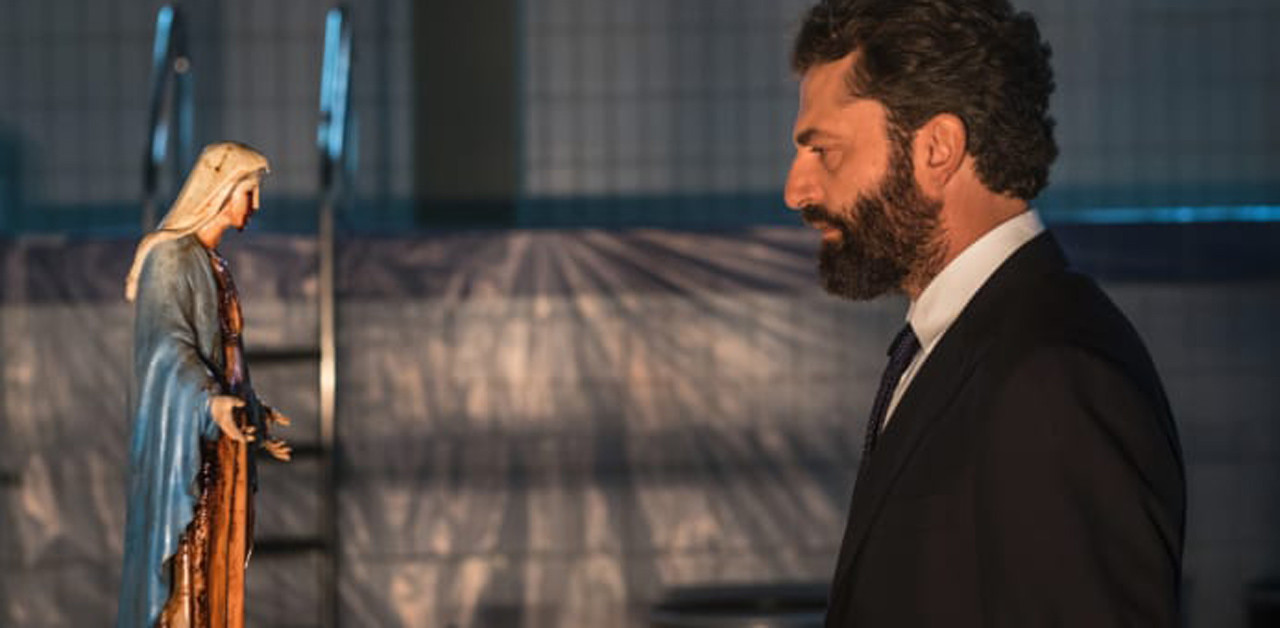
An intimism one finds in the successful series “Il Miracolo”: the protagonist keeps the discovery of a supernatural event to himself, without revealing the existence of a blood-crying Madonna statue to the world.
I thought it could be interesting to imagine how a powerful (and atheistic) man – representing Italians – would find himself being confronted with an inexplicable phenomenon. An event that can the destiny and life of many people, and even turn their existence upside-down. Unlike many politicians (who would have played the notoriety card), he keeps it to himself, showing absolute seriousness. Such choice affects his life as well as the one of the few persons that experience the miracle. And the mystery won’t be disclosed until the very end.
Will there be a second season or is it open to everyone’s free interpretation?
I don’t believe there will be a second season. Our aim was not to give only one answer or just one explanation (otherwise you wouldn’t call it mystery of faith). “Il Miracolo” wanted to bring out “the matter of faith” and the relationship each person has with it. Every single spectator (whether a religious, atheistic or scientific person) finds “his or her” answers in the final.
Why does the general public seem to be more and more interested in the TV series nowadays?
Both series and films adopt restrictive codes as compared to the freedom of storytelling, and are often imposed by producers. Maybe the construct of seriality in TV offers the audience more details – a bit like in literature – and allows the authors to open parallel paths compared to the main story of the protagonists. Personally, I was lucky because I was granted a certain extent of freedom by the producers (including several shootings of the same scenes, which did not convince me while editing).
How much does coffee keep you awake? Do you prefer rituality and slow tasting or just a quick espresso?
I drink coffee when I have the feeling that I’m tired. In fact, I drank a lot of coffee during the shooting. But I can say that I prefer the moka pot more than the espresso.

